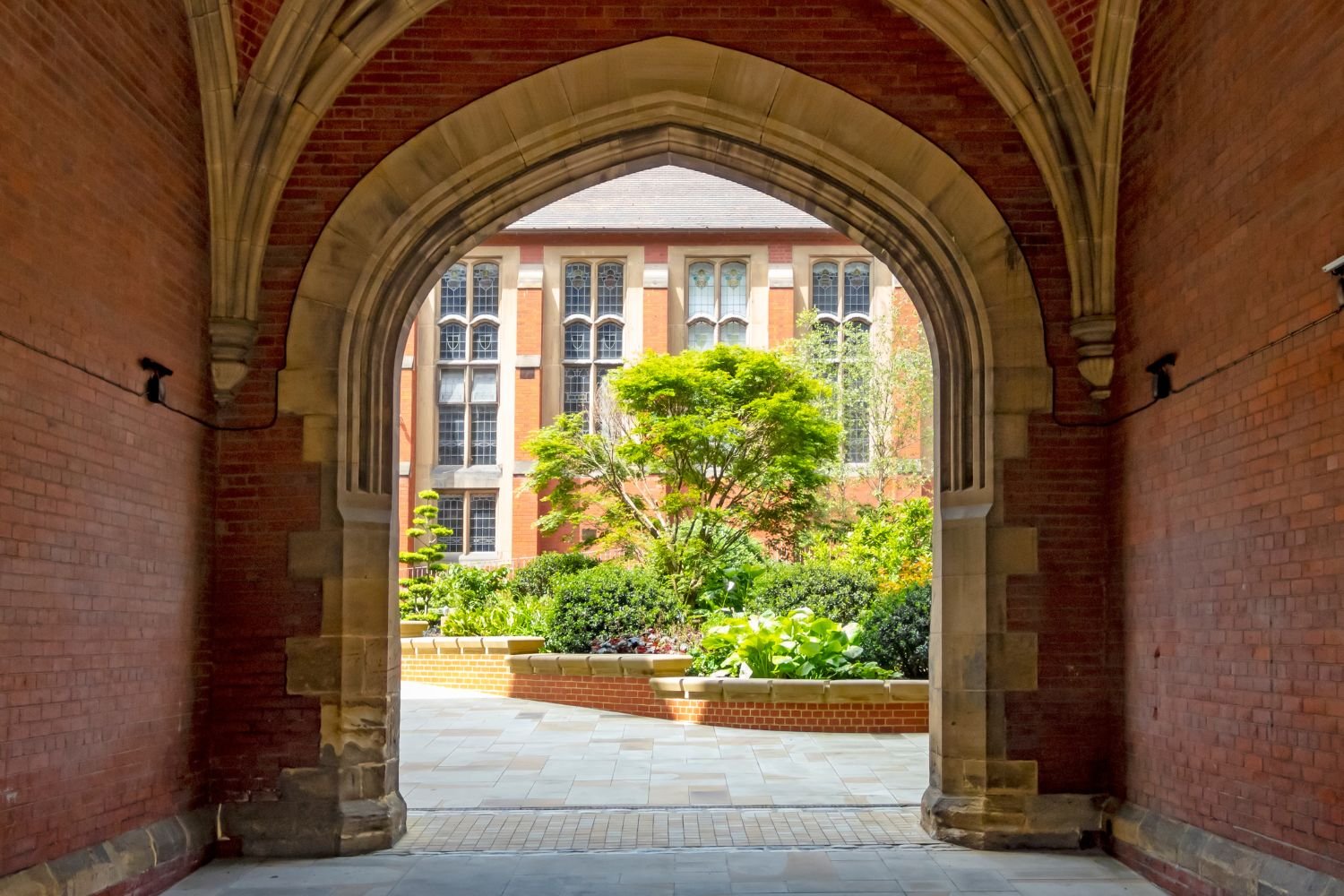Articles
Something new every week!
Search all articles

Your university choices confidence scorecard
So, you are making your final, firm choice of course. You read websites, chat to teachers, go to open days, and explore social media.
You want to be as confident as you possibly can be about your decision.
But decisions are complex right? And sometimes confidence doesn’t come easy.
So today, we’ll strip back your decision, right down to the essentials with my university choice confidence scorecard.

Finding a sense of belonging at university
We all know how important it is to have a sense of belonging; in our family, amongst our friends, and of course, when choosing a university.
Why?
Because belonging affects everything at university; how much you enjoy the course, how good your mental health is, how well you do in exams, even whether you pass or fail.
So how do you know whether you’ll feel that sense of belonging when you are choosing a university?

Hold on, but not too tight
During a recent family chat about training for a half-marathon, I asked my sisters if they knew what you were supposed to do with your hands when running. Should you grip your fists like a boxer? Or just let them shake loose?
“Well…”, said the sister who was training, “Apparently you are supposed to pretend you have a piece of paper between your thumb and forefinger, then hold on to it, but not too tight”.
“Hold on, but not too tight?” says my other sister, “That sounds like great advice for pretty much everything!”

Making big decisions with a bias to action
A few weeks ago I wrote a piece about five mindset changes that I’d learned about in “Design your Life” by Bill Burnett and Dave Evans. I described one of these mindsets as “try stuff”, but the term they use for it is having a “bias to action”. For me it’s been such a game changer in my life that I thought it worth exploring a bit more deeply.
What is a “bias to action”? What does it look like when making long term decisions? And how can I start to make it a part of my mindset?

Choosing between different universities
Every so often I come across questions that challenge my assumptions about the university applications process.
Right now, loads of students are receiving their offers and starting to make firm and insurance decisions. Meanwhile, there are parents out there asking questions online that make me realise just how much I take for granted, having worked in the university sector for so long (30 years and counting…)
One question on a parents facebook group that has surprised me most in recent weeks has been a parent asking for thoughts on choosing between Loughborough and Nottingham Trent.

Five mindsets for designing your life
I’ve just finished reading Design Your Life, by Bill Burnett and Dave Evans. It takes the principles of design thinking and uses these to help build your career. It's a great read, and whatever stage you are at in your career, if you feel things aren’t quite going to plan, I’d happily recommend it.
And for those of you who are in the process of making your university choices, there are five basic mindsets in the book that you can definitely apply to your university search.
So, today I’ll look at each of these mindsets, and how you can use them as you research and make your university course choices!

A super-quick guide to the Scottish Universities
I grew up in Scotland, studied at Edinburgh and then worked at Stirling for the first phase of my career. I absolutely loved my time at university, and it’s safe to say that I am a big fan of Scottish education. But is it really all that special? Is there really anything that sets Scottish universities apart from others in the UK?
Well, there are certainly some differences, but whether they are special, depends on you and what you are looking for.
Building on the approach that I took a couple of weeks ago, looking at similarities between universities based on a bit of history, I thought it would be interesting to look at the Scottish universities in three quite distinct groups:

Six things I’d do if I were choosing a university course right now
OK, so I applied to universities in the 80s.
No league tables, no social media, and in fact no internet at all. Just a very large book in the school careers library with some serious lists in it. And a handful of prospectuses - though even those weren’t quite like the glossy brochures of recent years.
I basically chose on the basis of hearsay, reputation, and following in the footsteps of my siblings.
No disrespect to my siblings, but it was a pretty terrible way to choose a university.
Knowing what I now know, after a 30 year career spent in university marketing and admissions, it’s no surprise that if I had another chance, I’d do things a bit differently.

If you like… you might also like…
So, you’ve found a couple of universities you really like. Perhaps it’s the location, the campus, their approach to teaching? Or maybe it just felt right when you visited.
Now you want to find a couple more that are similar so that you can have a range of different options on your UCAS form.
So what about looking at universities with a similar history?
I know it might sound crazy, but history can tell you a lot about a university; its type of location, its architecture, its approach to teaching, its community feel, even its purpose; its very reason for existing!

10 ways to work out if a university and course is the right fit for you
Choosing a course and a university is a tricky business.
In this back-to-basics article, I suggest ten things that you should definitely be thinking about as you make your choices.
From campus life to teaching style, accommodation, cost of living and careers, we look at the essentials of finding your best fit course.

Why are some universities so ridiculously hard to get into?
Whether you are applying to university yourself, or are helping and advising students, you’ll have all heard the same stories: a student predicted A*A*A*, with an excellent Personal Statement and Reference gets rejected from a top university. Come A-level results day, some of these students will find themselves with no offers at all, and might even find themselves as a headline in the press.
But why is this? Why are amazing, talented students so frequently finding themselves rejected by universities, when there seems to be nothing wrong at all with their applications?
Well, to understand, we need to go back a few steps.

Five to two: Making your final UCAS choices
As I write, many of you will be receiving offers from your chosen universities. It’s a nervous time, and while some of you will be getting offers promptly within days of applying, others may need to wait weeks, or even months for a decision.
So when you get all these decisions from universities, what happens next? Well, the response is now up to you.
The universities will all be hoping you’ll choose them. They’ll be sending you emails, inviting you to visit days, perhaps even sending you a brochure or two in the post. But the reality is that the power now rests with you. You get to choose which offers to accept!
So, how does it all work, and what should you be thinking about as you accept your offers?

‘I just liked the logo’: How branding can help you make your university choice.
I expect at some point, you will all look at a university website and think ‘Yes, that’s exactly what I’ve been looking for!’, or perhaps ‘Nah, this isn’t for me’. And trust me, a lot of that will be to do with their brand, and how they have presented themselves.
Because of this, I wanted to give you just a few thoughts about university branding.
Bear with me; I promise there will be some useful take-aways at the end, and along the way you’ll learn some new stuff about marketing and strategy.

University rankings and league tables: just how useful are they?
You will probably be familiar with the concept of university league tables: they are rankings of universities, listed from best to worst, published so that you can easily identify the top universities in the country, and in the world - right?
Well, let's see…

Making your university choices: are you a driver or a passenger?
Right now, I’m reading Who gets in and why: A year inside college admissions, by Jeffrey Selingo. It’s a book all about university and college admissions in the US, by a renowned journalist who embedded himself inside several university admissions offices to find out what really happens. It’s a fascinating read, and while there are enormous differences between UK and US admissions, there are one or two areas where there are direct parallels between the two countries.
One aspect of his analysis that immediately resonated with me was his characterisation of applicants as either drivers or passengers.

How to avoid becoming a drop-out statistic
OK, so I really don’t like the term ‘drop-out’, but I wanted to get your attention, and ‘non-completion rates’ or ‘students leaving their degrees’ just didn’t cut it as a headline. I promise I won’t use it again.
But here’s the thing… recent data released by the Student Loans Company has revealed that the number of students who are not completing their degrees is on the rise, up around 28% over the last five years. (See this BBC article).
This is not good.
In human terms, that’s nearly 42,000 young people who left their degrees last year uncompleted, carrying with them their student debts, and doubtless a whole load of other unwanted baggage.

We need to talk about The Russell Group
Have you heard of the Russell Group? If you’re just at the start of your decision-making journey, you might not have. But rest assured, as you start to investigate your university options, it’s going to crop up!
The Russell Group, you see, is a group of 24 universities regarded by many as being the top universities; the most prestigious universities; the universities that the best students should be applying to.
They formed in 1994 as a group of 17 research intensive universities after a handful of informal meetings at the Russell Hotel in Russell Square*. They now have a membership of 24, including Oxford, Cambridge, Imperial, Manchester, Southampton and Liverpool, amongst others.

Just how ambitious should you be with your initial five UCAS choices?
The basic principle behind the UCAS system is that it balances the need for students to have a range of choices when they apply, with the need for universities to have some kind of predictability in working out how many offers to make. So, for many years, students have been able to make up to five choices. Any more, and the universities will simply be swamped with applications that are not realistic or necessary. Any less and you could run the risk of not getting an offer of a place that suits you.
The system works reasonably well most of the time, provided students are realistic with their applications, and provided universities are transparent with their entry criteria, and consistent with their offers. This year nearly 79% of A-level students secured their firm choice (ie. their first choice course), while 12% got into their insurance choice.
So, how do you make sure the system works well for you? How do you turn all that research, all those possible choices, into a list of five courses on your application form that gives you the best chance of getting into a course that you really want to do? Is it as simple as listing your five favourite courses? I’m afraid not. But neither is it some dark art where you need to have some amazing insight and specialist knowledge to get it right. Just read on, and I’ll try to make it as simple as possible.

Things to see, do and ask at a University Open Day
Off to an open day soon? With over 100 such events in September and October, it’s certainly a good time to be going!
Open days were always one of my favourite parts of working at a university. I loved seeing everyone arrive on campus - all with a sense of excitement and anticipation about what this intriguing place might hold in store for them in their future. I loved working with a team of staff and student ambassadors, doing our very best to show off our university, and giving future students just a small glimpse into what their next steps could look like.
Of course we tried to show our university in the best possible light, and it's for that reason that I’ve written this; a few tips on how to understand what they are showing you, and when to ask for more, or to see things a little differently.

Embrace the chaos: Nietzsche and choosing a university
Ever read any Nietzsche? Nope? Me neither! But I have read a little bit about Nietzsche, and one of his ideas particularly resonated with me when it comes to choosing a university. The quote that caught my eye was this:
“You must still have chaos in you to be able to give birth to a dancing star”.
